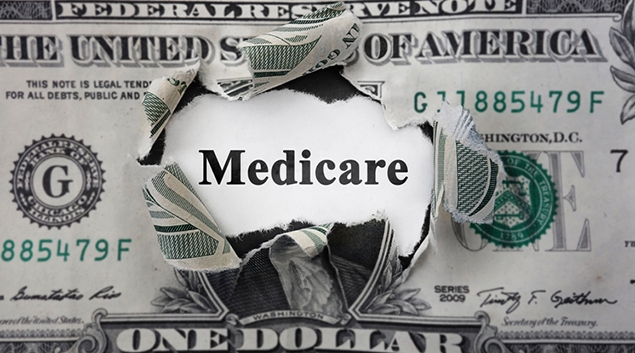The future of Medicare, the federal health insurance program for Americans aged 65 and older, has been a topic of concern for many years. With an aging population and rising healthcare costs, there have been concerns about the program’s ability to maintain its financial stability. In this article, we’ll explore the question: What year will Medicare run out of money?
Understanding Medicare’s Funding Structure
Before diving into the specifics of Medicare’s financial outlook, it’s crucial to understand how the program is funded. Medicare has two main components:
-
Hospital Insurance (Part A): This part covers inpatient hospital stays, skilled nursing facility care, hospice care, and some home health care services. It is primarily funded through payroll taxes paid by employers and employees.
-
Supplementary Medical Insurance (Parts B and D): Part B covers outpatient services, such as doctor visits and preventive care, while Part D provides prescription drug coverage. These parts are funded through a combination of premiums paid by beneficiaries and general revenue from the federal government.
The financial health of Medicare’s Hospital Insurance Trust Fund (Part A) is the primary source of concern regarding the program’s solvency.
The Trustees’ Report: Projections for Medicare’s Future
Each year, the Medicare Board of Trustees releases a report that analyzes the program’s financial condition and makes projections about its future solvency. According to the latest report released in 2023:
- Medicare Part A (Hospital Insurance): The Hospital Insurance Trust Fund is projected to become insolvent in 2031. This means that the fund’s reserves will be depleted, and incoming payroll taxes will be insufficient to cover 100% of the program’s costs.
- Medicare Parts B and D (Supplementary Medical Insurance): These parts are not facing insolvency because they are funded through premiums and general revenue, which are adjusted annually to match projected costs.
It’s important to note that even after 2031, the Hospital Insurance Trust Fund will still have enough revenue to cover approximately 90% of its costs. However, without changes to the program’s funding or expenditures, beneficiaries may face reduced coverage or higher costs.
Factors Affecting Medicare’s Financial Outlook
Several factors contribute to the projected insolvency of the Hospital Insurance Trust Fund:
-
Demographic Changes: As the baby boomer generation ages and life expectancy increases, the number of Medicare beneficiaries is growing faster than the number of workers contributing payroll taxes.
-
Rising Healthcare Costs: The overall cost of healthcare services has been rising at a faster rate than general inflation, putting pressure on Medicare’s finances.
-
Economic Conditions: Factors such as wage growth, unemployment rates, and productivity levels can impact the amount of payroll tax revenue collected for Medicare.
Potential Solutions and Policy Considerations
To address Medicare’s financial challenges, policymakers have several options to consider:
- Increase Payroll Taxes: The Medicare trustees suggest that increasing the payroll tax rate from the current 2.9% to 3.52% could solve the long-term funding shortfall.
- Reduce Expenditures: Cutting Medicare benefits or making changes to reimbursement rates for healthcare providers could help control costs, but this option may face opposition due to its potential impact on beneficiaries.
- Implement Cost-Saving Measures: Initiatives such as reducing fraud and waste, promoting preventive care, and encouraging the use of generic drugs could help slow the growth of Medicare spending.
- Increase Premiums for Higher-Income Beneficiaries: Currently, beneficiaries with higher incomes pay higher premiums for Medicare Parts B and D. Expanding this approach could generate additional revenue.
Ultimately, addressing Medicare’s financial challenges will likely require a combination of revenue increases and cost-control measures. It’s essential for policymakers to find solutions that balance the program’s long-term sustainability with the needs of beneficiaries.
Conclusion
While the future of Medicare’s finances is a concern, it’s important to note that the program is not facing immediate insolvency or “bankruptcy.” The projected depletion of the Hospital Insurance Trust Fund in 2031 does not mean that Medicare will cease to operate entirely. However, it does highlight the need for policymakers to take action to ensure the program’s financial stability for future generations.
By understanding the factors contributing to Medicare’s financial challenges and exploring potential solutions, we can work towards preserving this vital program and ensuring that it continues to provide healthcare coverage for millions of Americans.
WILL SOCIAL SECURITY & MEDICARE RUN OUT OF MONEY? FORMER WHITE HOUSE INSIDER WEIGHS IN
FAQ
What happens when Medicare runs out of money?
What year will Medicare run out?
Will Medicare exist in 20 years?
Is Medicare in danger of running out of money?

